Combat in 19 years. Part of 3
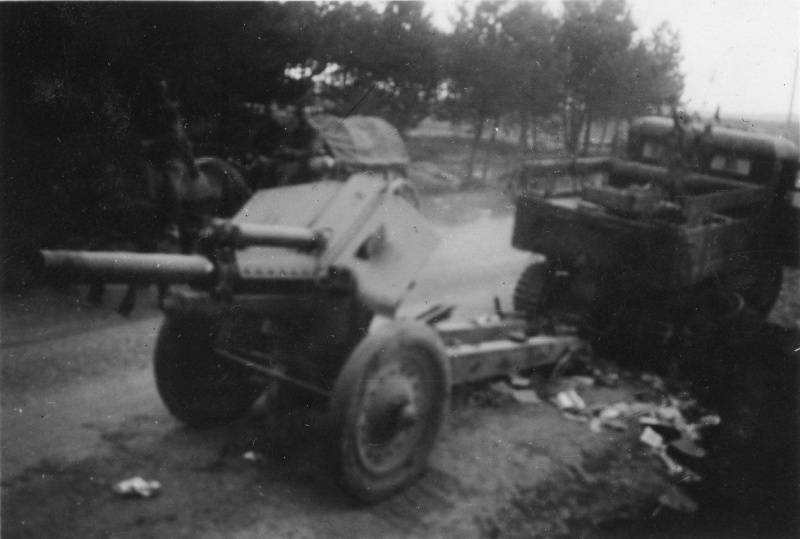
The transfer of troops to the region of Klaipeda went secretly. Cars went one after another under the cover of night without the lights on. Drivers with small flashlights could help each other. The Oryngali Esengaziyev artillery battery also moved with everyone in the 19 tank tank corps of the Baltic Front 1. He was considered an experienced soldier. In the 1944 year, he had to fight for the independence of the Baltic states against more than 80 German divisions with his comrades for four months.
Initially, the situation on the front in the area was not easy. In the area of Daugavpils, the troops launched an offensive in early June, but it came to naught. The headquarters decided to transfer the direction of the main attack to Siauliai in order to cut off the enemy grouping located in Latvia and Estonia from the main forces.
Heavy, bloody battles began, lasting more than two months. Often, gunners were forced to work direct fire, destroying enemy Tanks. Near the city of Šiauliai, about 400 tanks were destroyed.
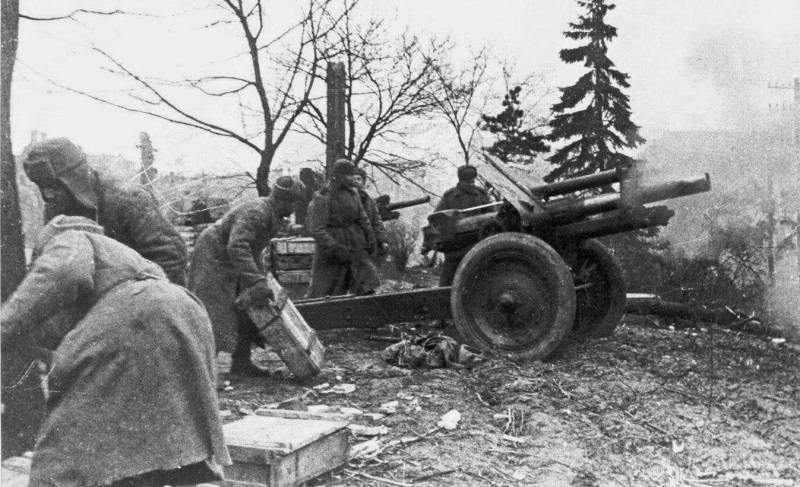
The troops were moving deep into the Baltic. Often, gunners had to open fire. Once the Oryngali battery was located north-west of the city, which our tanks went around and went further. Battery marching advanced along the road. It seemed no danger was foreseen. But on the way out of one small Baltic town there was a most unexpected fierce battle. On the road, the German bunker met them with fire. They drove back. They unrolled the guns and smashed the bunker with a direct hit so that the logs reared up like matches. The surviving Germans came out with raised hands. Took them and drove on. But at the edge of the forest they were met by German tanks. There was a shot - the front machine gunners lay across the road. The calculation remained unscathed and began to save the weapon, pulling it away. The rest of the cars began to unfold for return fire. At this moment, the gunner Sychov, taking grenades, crawled towards the tanks, but, struck by the machine-gun fire, he stopped forever, and the German tank still poelozil on him, pressing the body. And disappeared with impunity - the gunners could not open fire because of poor visibility. So the Germans finally took revenge. But not for long they had to crawl their tanks on Russian soil. The liberation stream of the Russian army was unstoppable. Despite the fierce resistance of the enemy, cities were liberated one by one.
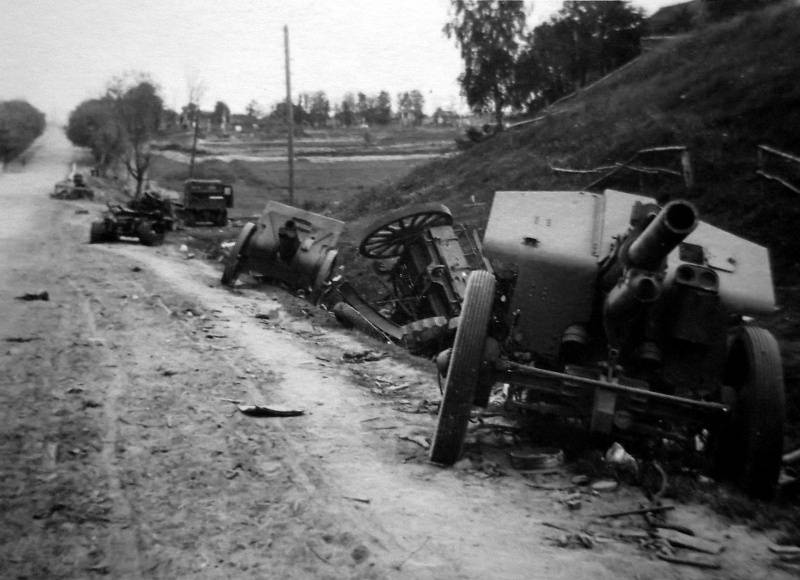
In October, Oryngali was injured. The sniper aimed straight at his forehead, but the bullet hit the red asterisk, went tangentially, only scratching his forehead. He was tied up by a company nurse - the blood stopped. Gunners tried to find this sniper, but he sunk into the water. The wound healed quickly. Oryngali didn’t even pay much attention to this. Especially since joyful events came at the front: on November 24, the troops of the Leningrad and three Baltic fronts — 1944, 1, and 2 — were surrounded on the Moonsund archipelago of the last enemy grouping and defeated it. The Baltic was finally liberated completely.
In the so-called Kurland boiler 27 of German divisions was clamped, which stayed here until the surrender of 1945 of the year. Hitler was in complete illusion that his troops would be able to develop an offensive from this bridgehead and forced their generals to believe in this illusion.
A terrible tragedy appeared before the eyes of Soviet soldiers when they discovered a POW camp near Salaspils. Here they took blood for wounded German soldiers and officers from small children and women. For a front-line soldier, this causes great and bitter regret, about which he writes in his book. In a completely different book on stories Latvia, published in 2005 year, for the sake of time, this camp is called by the modern Baltic historians simply as a corrective labor camp, where about 2000 people were kept. While members of the Soviet commission set up to investigate the victims of the atrocities of the German fascist invaders, counted about 100000 killed in this camp. Young children were kept here isolated from their parents, and when they died from malnutrition and from complete bleeding (the Germans turned the children into full donors), they were dragged out in baskets and dumped in a hole. The children gnawed on the bark of the trees. The soldiers then saw these shabby trees and could not, without shudder, tears and hatred, and pain, look at these terrible atrocities, which today are trying with all their might to whitewash cunning politicians. But memory, real memory is alive. Oryngali was alive, who in his memoirs tells about it to us, his spiritual heirs.
Children of different nationalities died in the camp, including Baltic children. But some of their fathers and grandfathers completely denied this fact and stood under the fascist banners to fight with the maniacal persistence on the side of the swastika and continued to do it after 1945, too: back in 1952, there were shots of riotous brown plague that penetrated the heart of Latvia nationalists.
At the end of 1944, a temporary lull was established in the area of the Courland boiler: the Germans did not advance, but only defended their positions. The Oryngali battery, which by this time had lost a significant part of its membership, was transferred to the replenishment along with its body. At the same time, the commander of the 26-th motorized rifle brigade presented orders and medals to the fighters who showed their military prowess during the liberation of the Baltic states. He received the Order of the Red Star and Oryngali Esengaziev.
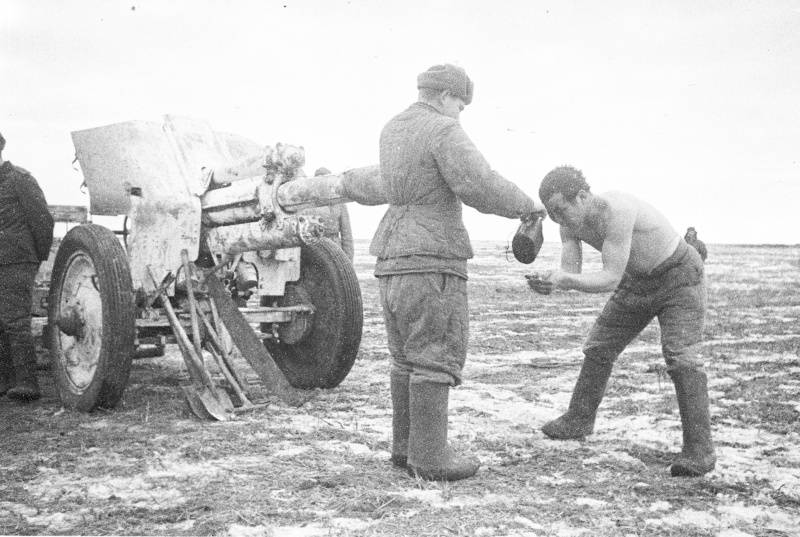
At the beginning of 1945, a joyful revival reigned on the Oryngali battery and throughout the country, caused by the fact that the war was completely over in the Soviet Union, and the fighting at the beginning of 1945 was already fought in the border states.
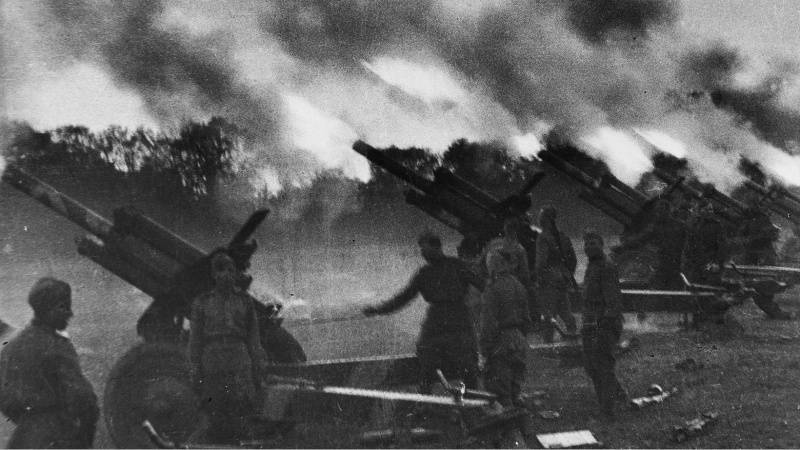
I was pleased with the gunners and the fact that new models of equipment and weapons: 11000 self-propelled artillery installations and tanks, the number almost doubled compared to 1944 year. The SAU-100 also began to flow and mass production of the medium tank T-44 began. All this and much more provided an opportunity to launch a large-scale operation from the Baltic Sea to the Danube. This history of military thought did not know.
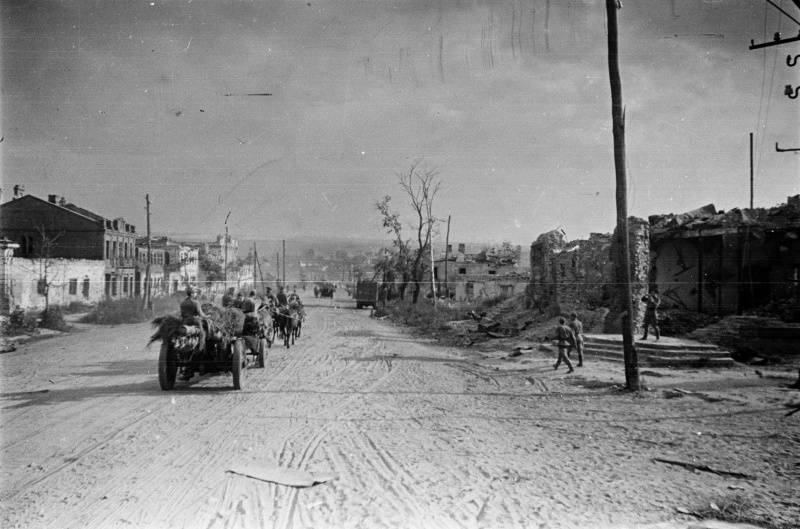
Only at the beginning of 1945, their corps, finally, was fully equipped with men and weapons and was sent to Europe. Moved several echelons. It seemed to them that the war was retreating every day and it was almost impossible to catch up: Poland, Vienna, Budapest were free, where they arrived in early March. But Lake Balaton was another, the bloodiest point of the battle, in which Oryngali participated. The Germans took all measures to repel the advancing Soviet units. Back in February 1945, the Germans began to accumulate significant forces here. To prevent the German offensive, the Stavka issued an order to crush the German grouping in the Lake Balaton area.
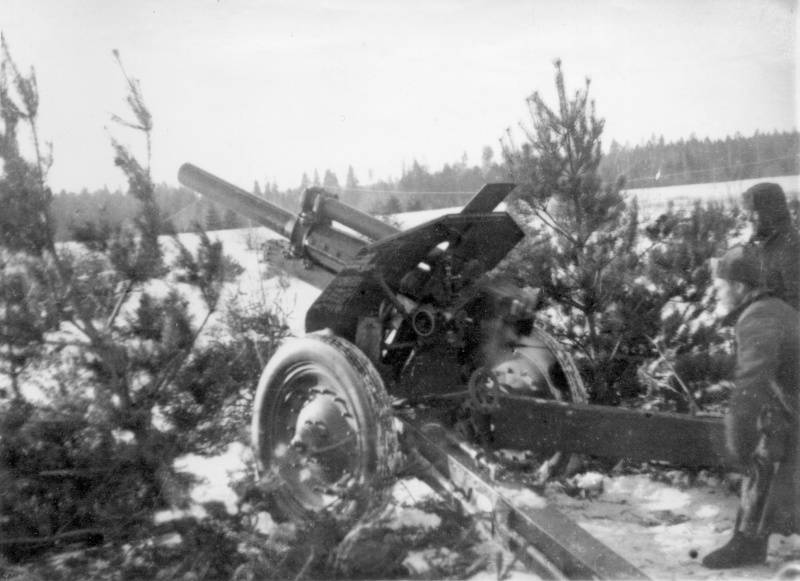
In his book of memoirs, Oryngali writes that artillery played a large role in this operation. “To combat the enemy’s tanks, sixty-six anti-tank ditches were created on the 83-kilometer stretch from Gant to Lake Balaton and 65 percent of all front artillery was concentrated. In the most dangerous areas, the density of artillery reached sixty to seventy guns and mortars per kilometer of the front. The depth of defense in individual sections of the front reached 25-30 kilometers. And such preparation was not in vain. To break through the defense, the German command launched massive tank attacks. On the first day, in some sections of the front, one and a half to two kilometers wide, up to seventy tanks and assault guns simultaneously participated in the attacks of the Nazis, and on the second, with the support of aviation about two hundred tanks and assault guns were advancing. ”
And then the German command launched more than 100 tanks into battle. "Royal Tigers", "Panthers" - everything went on their last move, ending on March 15: the Germans on that day stopped the offensive in order to reach the Danube. They could not break through several echelons of the Soviet defense, one of which also contained an Oryngali battery. This enabled the Soviet troops to launch a rapid attack on Vienna.
Meanwhile, the Oryngali corps was transferred to Romania. It was here that they ended the war, everyone was waiting for news of an imminent Victory. And she has arrived.
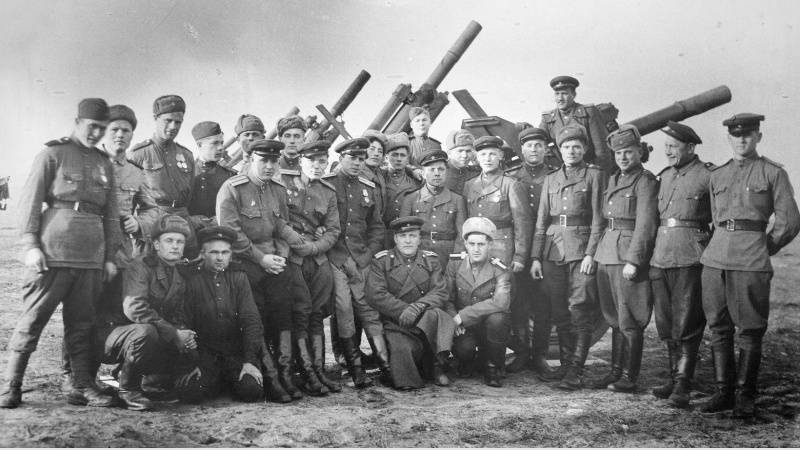
He remembered that they woke them up early in the morning in alarm and announced the arrival of the long-awaited Victory. He remembered the shots from all the guns and weapons and the tears of the old soldier. He wept, and mean drops dripped down his old, wounded face. So came the victory.
In his book, Oryngali Esengaziev particularly emphasizes that even 30 of April 1945 of the year along with other fighters, the Victory flag over the Reichstag was strengthened by his fellow countrymen from Kazakhstan: Lieutenant Rakhimzhan Koshkarbayev and private GP. Bulatov from 234 th regiment.
But military service for Oryngali ended only at the end of 1946 of the year. After demobilization, he returned to Kazakhstan and began working in the anti-banditry department, meeting with a masked enemy. The leader of one of the gangs Oryngali took personally. And then he was sent to study at the school of the Ministry of Internal Affairs of the USSR. And his life stitch went along this line. For two decades he worked in the Department of Civil Engineering Security, engaged in the restoration of justice on the economic front. One of the high-profile cases that he managed was told by the newspaper, where the article, in particular, reported how a number of officials resold public apartments at high prices, took away the proceeds and illegally used people's goodness, plundering socialist property. ” But their affairs were revealed.
Oryngali and his team dealt with many such cases. And for his integrity, many criminal elements “didn’t like him,” even two Tajik killer were specially hired to kill him, but they were discovered in time and punished to the fullest extent of the law.
Another loud case of those years, the “golden case”, was also able to be revealed thanks to the principled position of Oryngali, who understood the way the smuggled gold from Magadan to Alma-Ata goes: operational workers then found 32 a kilogram of gold. But how much he had to endure: they were pressed from all sides, they called and threatened, but the front-line soldier could not be broken. Were not those who pressed on him, at the front, they did not know what it was to keep the spirit of war inside and temper him. But there were also detractors in the system of the Ministry of Internal Affairs: they found a trifling violation, found fault, reprimanded and sent the colonel to the reserve of the Ministry of Internal Affairs, and from there he went on a well-deserved rest.
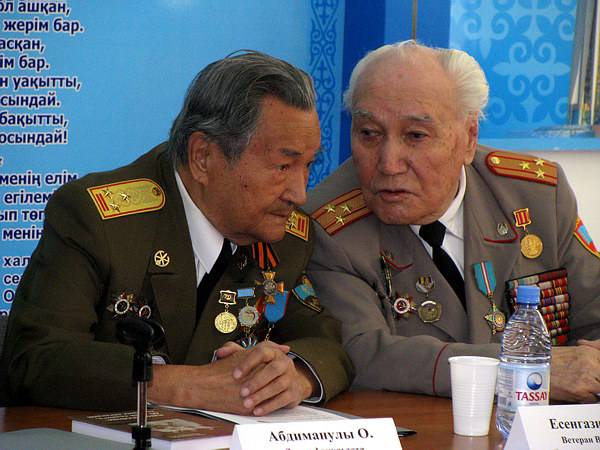
But he did not rest, sitting at the TV. He decides to get down to business, and the first in his diary appears a plan to create a special fund to support veterans of the Great Patriotic War. Yes, and with the police to part did not work: he decided to create a museum of military and military glory at the police department of the city of Almaty, headed the veteran organization of police. There was a lot of work and care. On the day of the 50 anniversary of the Victory, he walked along the pavement on Red Square in the same line of front-line soldiers who were welcomed standing at the Victory Parade.
Life continued after the war, and it was necessary to be able to properly dispose of it in order not to be on the sidelines, but to be, in general, a victorious ranks. And only death took veterans out of order. But already their children and grandchildren were put into this system, continuing to keep the work of fathers and grandfathers in their hearts and in their affairs. I express my sincere gratitude to his grandson Nurlan Dussali, who wrote a letter to the editorial staff of the Military Review website with a request to tell about his grandfather Oryngali Esengaziev. About the enormous spiritual support from his relatives and veterans' organizations Oryngali Esengaziev spoke at the end of his book, which he wrote in memory of the past war years.
Some pages of the combat path of the battalion commander O.E. Esengaziyeva (from the book “Great Patriotic War. Fate of the Combat”, Almaty, 2010 year):
1941-1942. Selishche Aviation Technical School, the city of Petropavlovsk.
1942 - January 1943. Higher Sumy command artillery school, the city of Achinsk.
February 1943. Moscow region. Kalininsky front. Formation.
March 1943. Rzhev-Vyazemsky operation to eliminate the Rzhevsky bulge.
January 1943. The liberation of the Great Bow. Kalininsky front.
August-December 1943. Defense behind the Great Bows. Kalininsky front.
October 1943. Failed attack on Vitebsk. Kalininsky front.
November-December 1943. The offensive near Vitebsk. Western, 1 and 2 Baltic Fronts.
January - 2 February 1943. The offensive near Vitebsk. Western and 1 Baltic Fronts. Severe wound.
February-March 1944. The offensive near Vitebsk. Western and 1 Baltic Fronts.
The end of June is 1944. Vitebsk-Orsha operation. Liberation of Vitebsk. The beginning of the strategic offensive operation "Bagration".
July 1944. O.E. Yesengaziyev - commander of the battery of the artillery division of the reserve of the main command. The liberation of Belarus.
August-October 1944. Persistent battles in Lithuania, north-west of Siauliai, on the Memel direction. 1 Baltic Front.
September-November 1944. Liberation of the Baltic.
October 1944. Liberation of Latvia.
January 1945. Sending 19 tank corps to Europe.
March 1945. Fighting at Lake Balaton.
Information